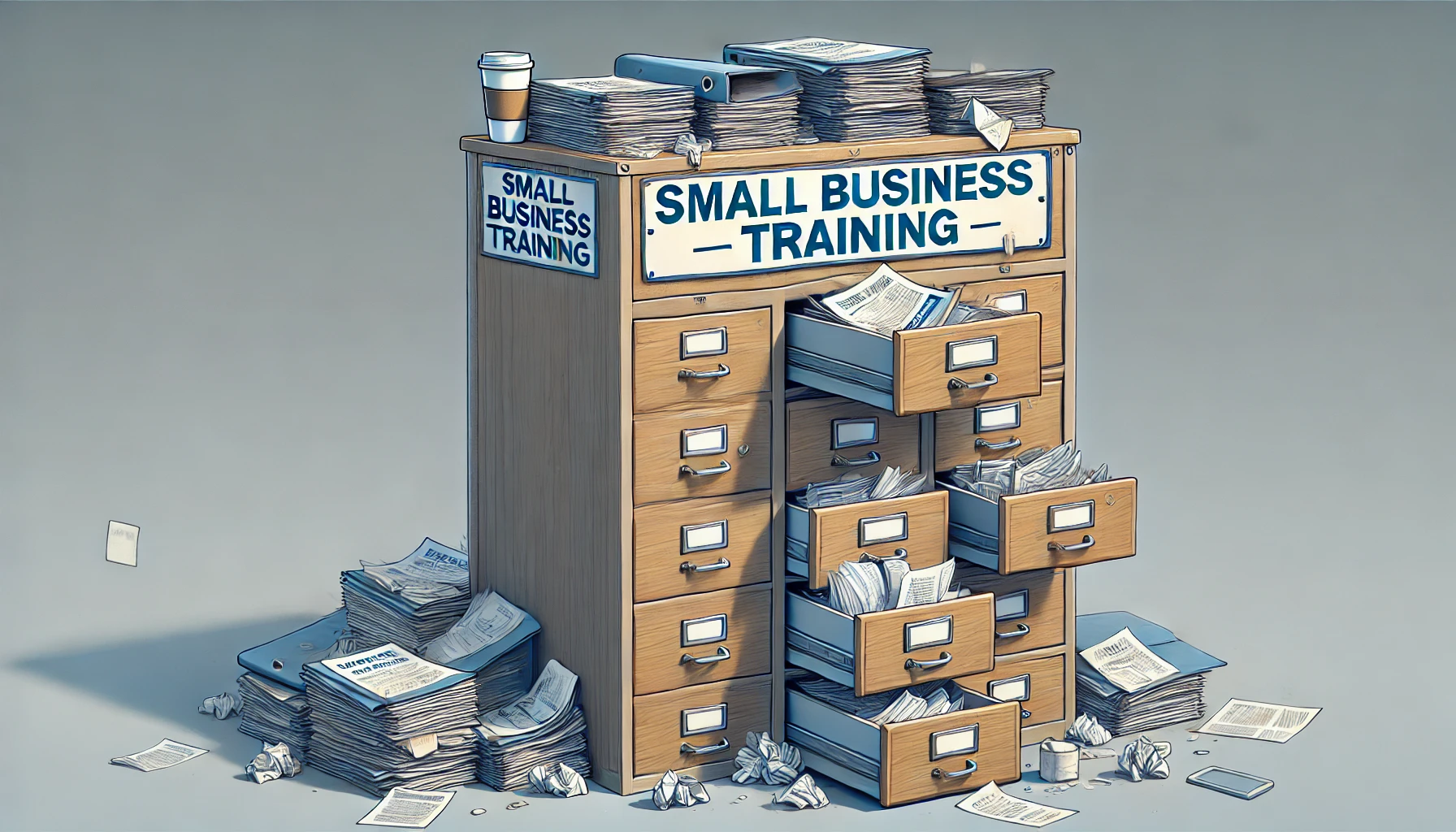
Let’s be honest—most small business training starts as pure chaos.
New hires get a quick “training session” (aka shadowing Karen for a day while she mutters, “I don’t know why we do it this way, we just do”). There’s a random Google Doc floating around with outdated instructions, and the company’s entire training philosophy is basically: Figure it out as you go.
Sound familiar? If so, you’re not alone. Many small businesses start this way because, well, it works—until it doesn’t.
As your business grows, winging it just won’t cut it anymore. Without a structured training system, employees take longer to get up to speed, mistakes multiply, turn-over is high, and you waste hours answering the same questions over and over.
In the past training technology was out of reach for small businesses. Between the setup cost, cost of ongoing administration, creating courses for your content library, integrating other systems, and convincing your team that training is a benefit felt exhausting. The good news? Small business training is getting organized. Over the past few years training technology companies like LatitudeLearning have found ways to make structured, effective training programs accessible to everyone no matter the size or resources at hand.
The real question is: Are you ready to organize your training?
In the early days, informal training makes sense. You’re a small, scrappy team. There’s no time for fancy training technology or structured onboarding. But as your business scales, training chaos leads to:




If you’ve noticed any of these issues, congratulations! You’ve outgrown your current training method and are ready to turn training chaos into clarity for your team.
If any of the following sound familiar, it’s time to upgrade your training approach:
If your business is growing, your training program needs to grow with it if you want to maintain success.
So, what does good small business training look like? Here’s what sets organized training apart from the usual chaos:





If this sounds overwhelming, don’t worry. You don’t have to build it from scratch. The easiest way to organize your training is with a Learning Management System.
Ready to level up your training? Here’s how to transition from messy, inconsistent training to a scalable system:
A quick training gap analysis can help you determine your goals as well as your end destination.
Training technology like Learning Management Systems aren’t just for giant corporations. It’s a game-changer for small businesses looking to scale efficiently. Not all LMS platforms are created equal. Small businesses need something user-friendly, cost-effective, and scalable—like LatitudeLearning (shameless plug, but seriously, we are built for this).
Think of an LMS as your virtual training assistant—one that never forgets, never takes a sick day, is always upgrading, and doesn’t need coffee to function.
Don’t try to do everything at once. Start small by identifying your goals for a training program and build from there.
Once your system is in place, track who’s completing training, what’s working, and what’s not. Adjust based on feedback and keep refining your training strategy. For best practices you should be reviewing your training each year to identify gaps and improve content.
The way small businesses train employees is changing fast. Keeping up with training trends can mean the difference between flying and flopping when it comes to running a small business.



Businesses that embrace scalable training early will have a massive advantage over those still scrambling to “figure it out.”
Small business training is evolving, and companies that don’t adapt will struggle to survive. The businesses that invest in organized, scalable training now will:




So, are you ready to move from training chaos into clarity?

See for yourself what makes LatitudeLearning stand out. Free 30-day trial includes: